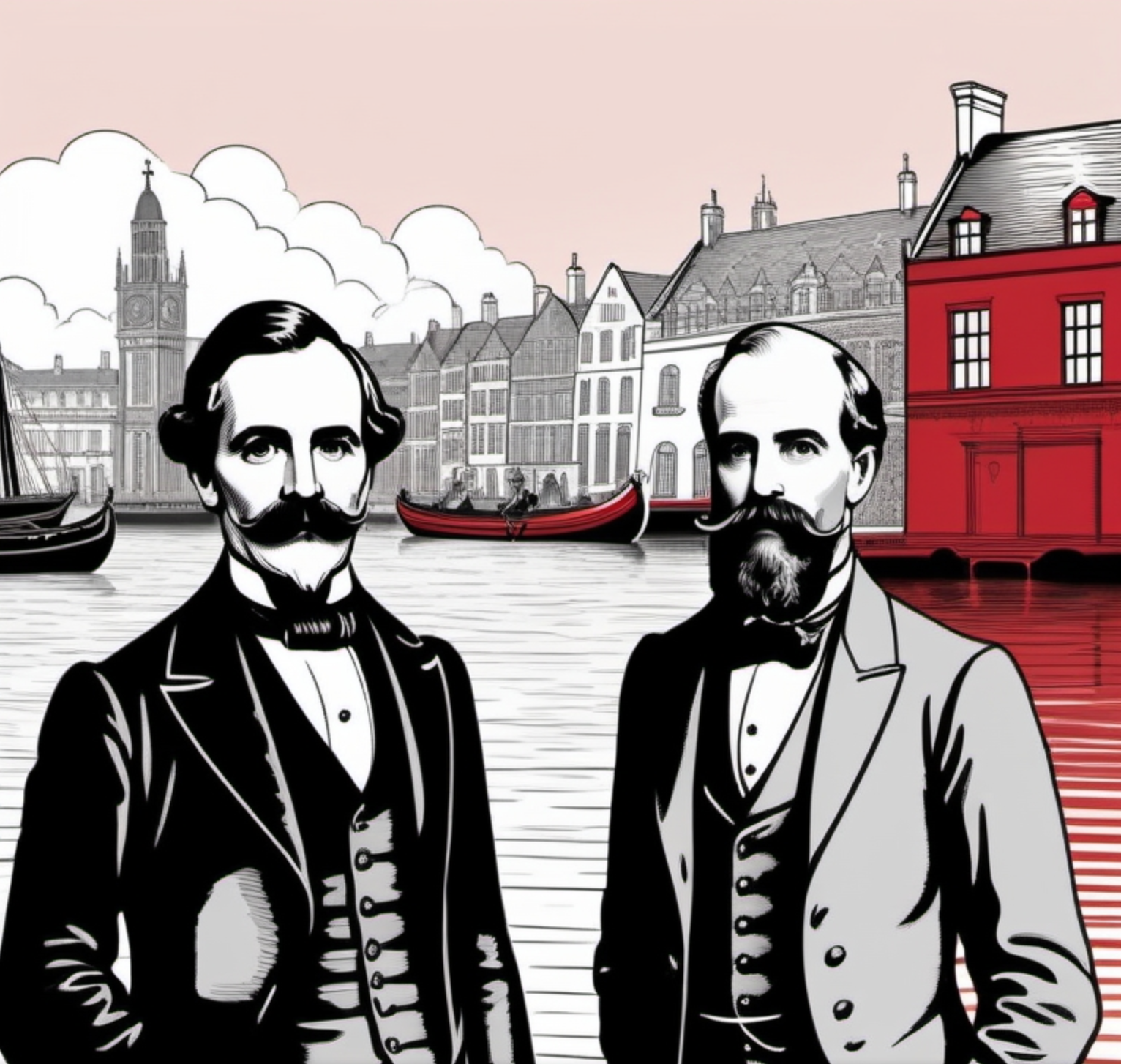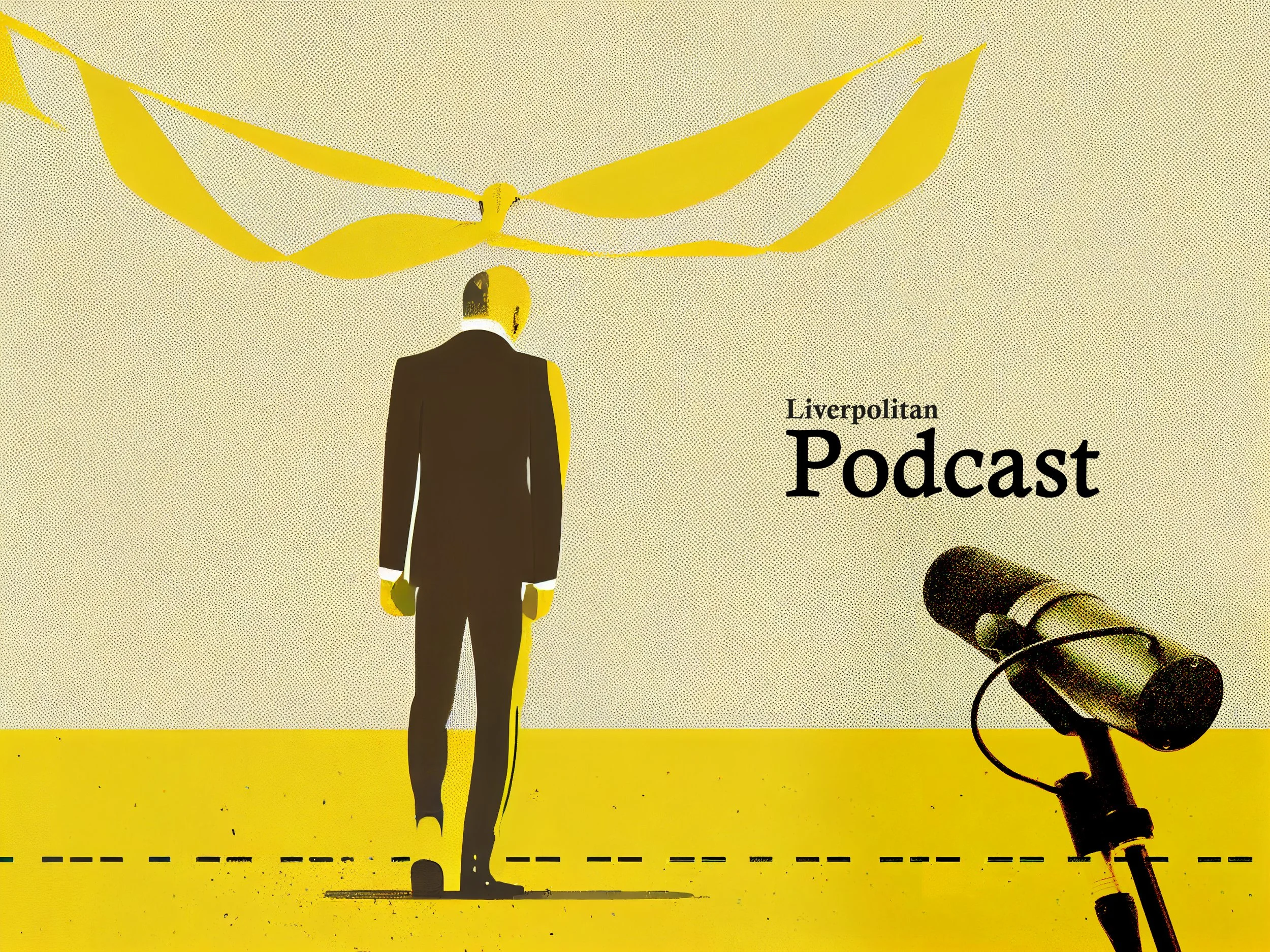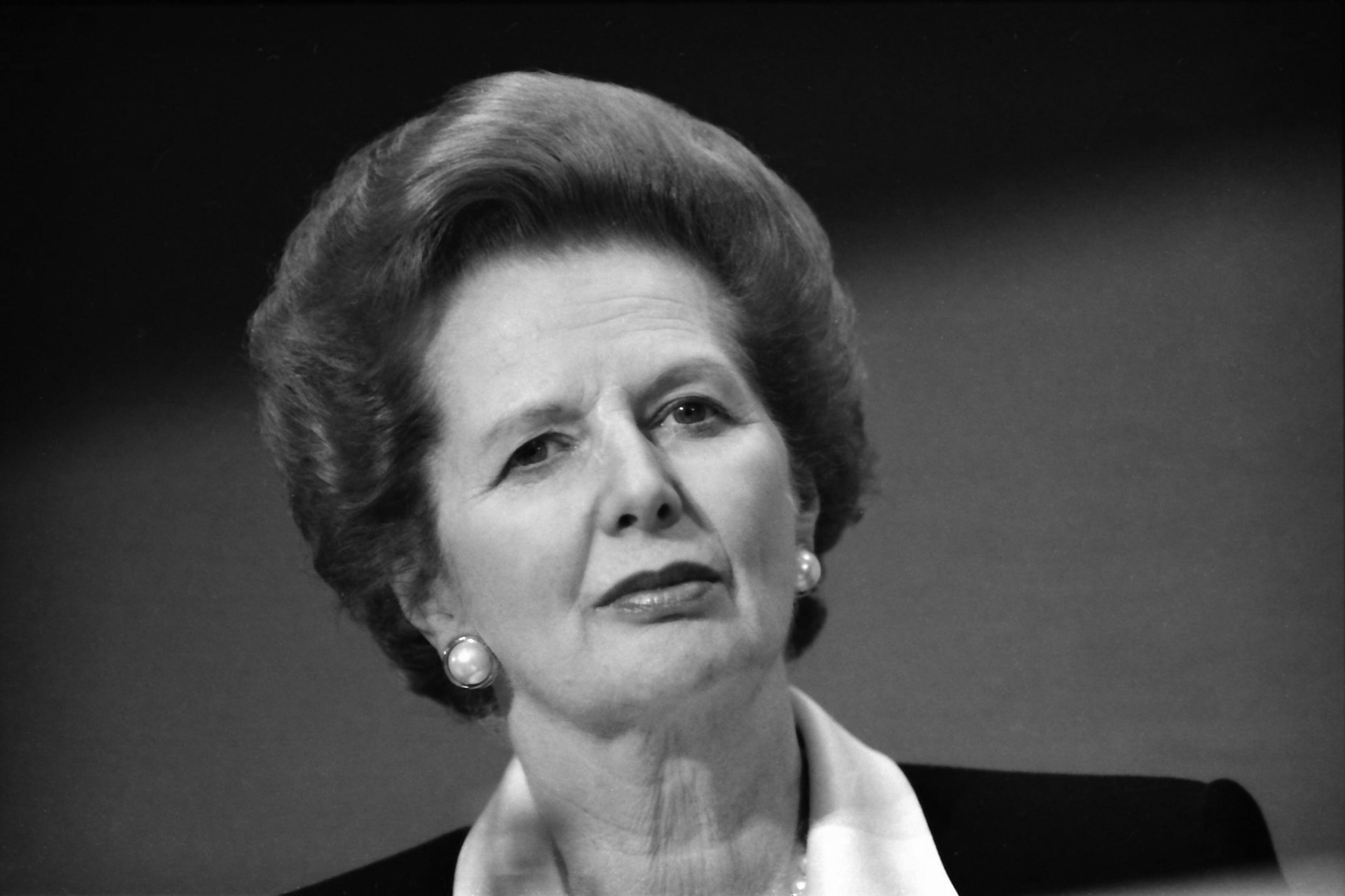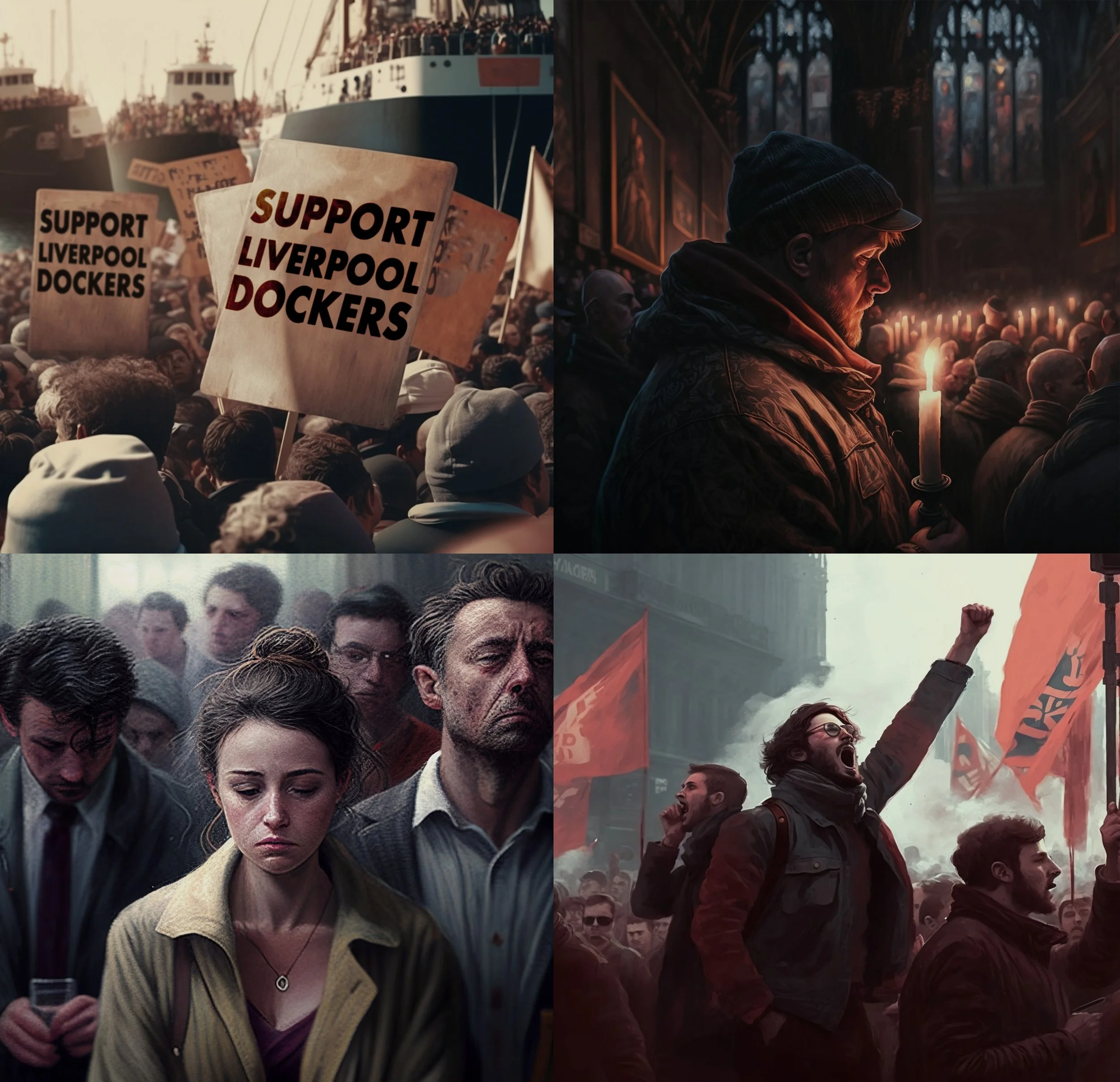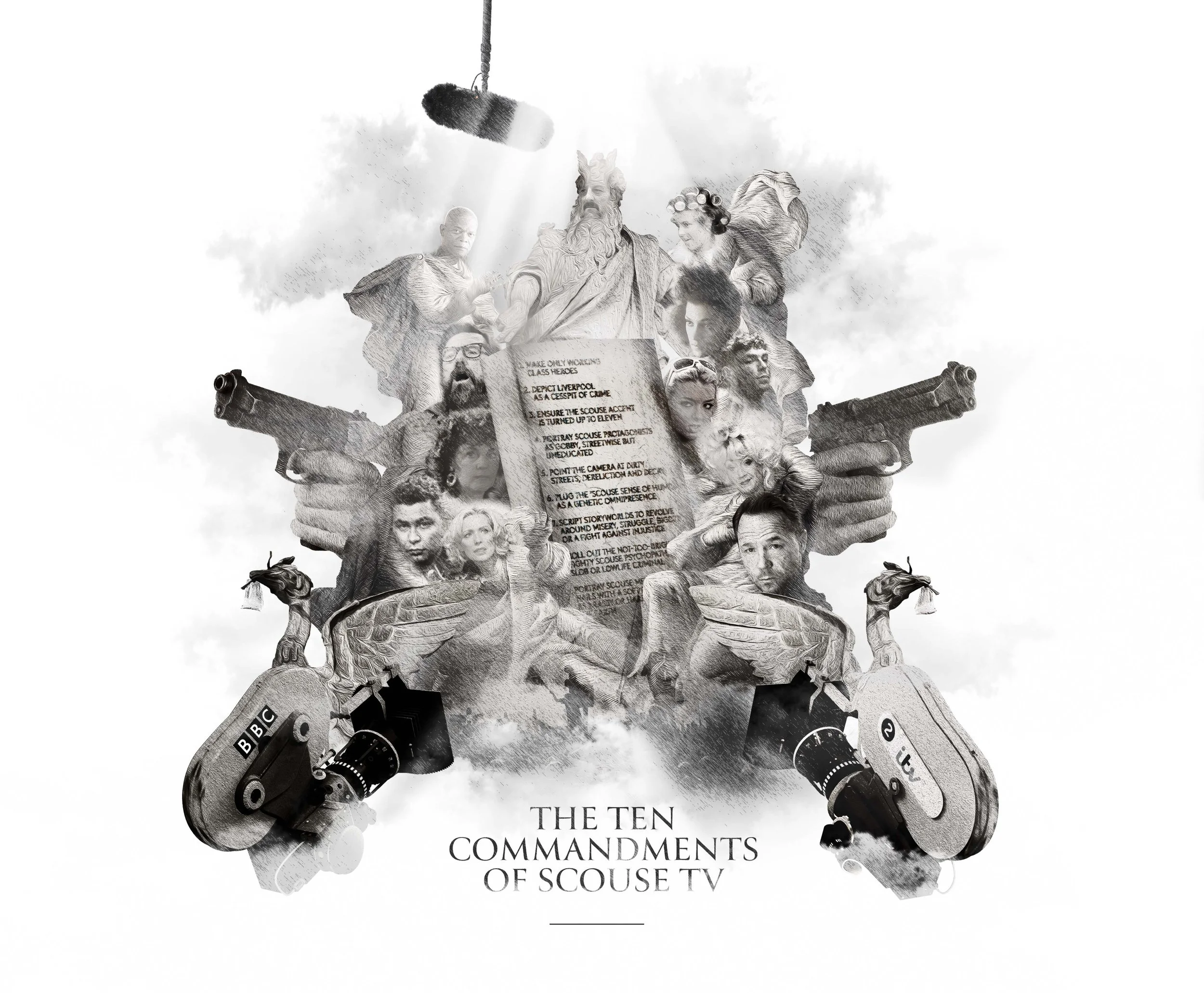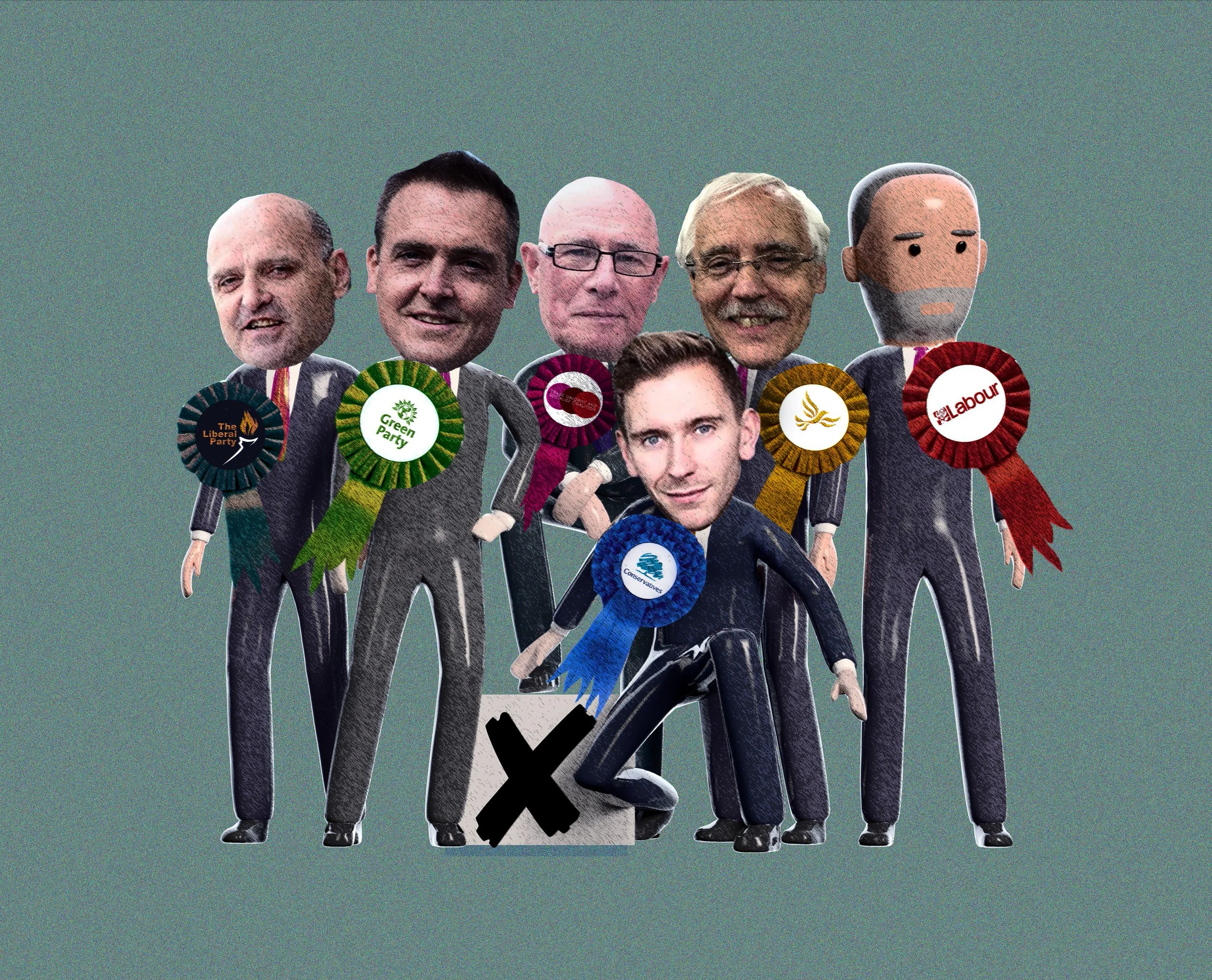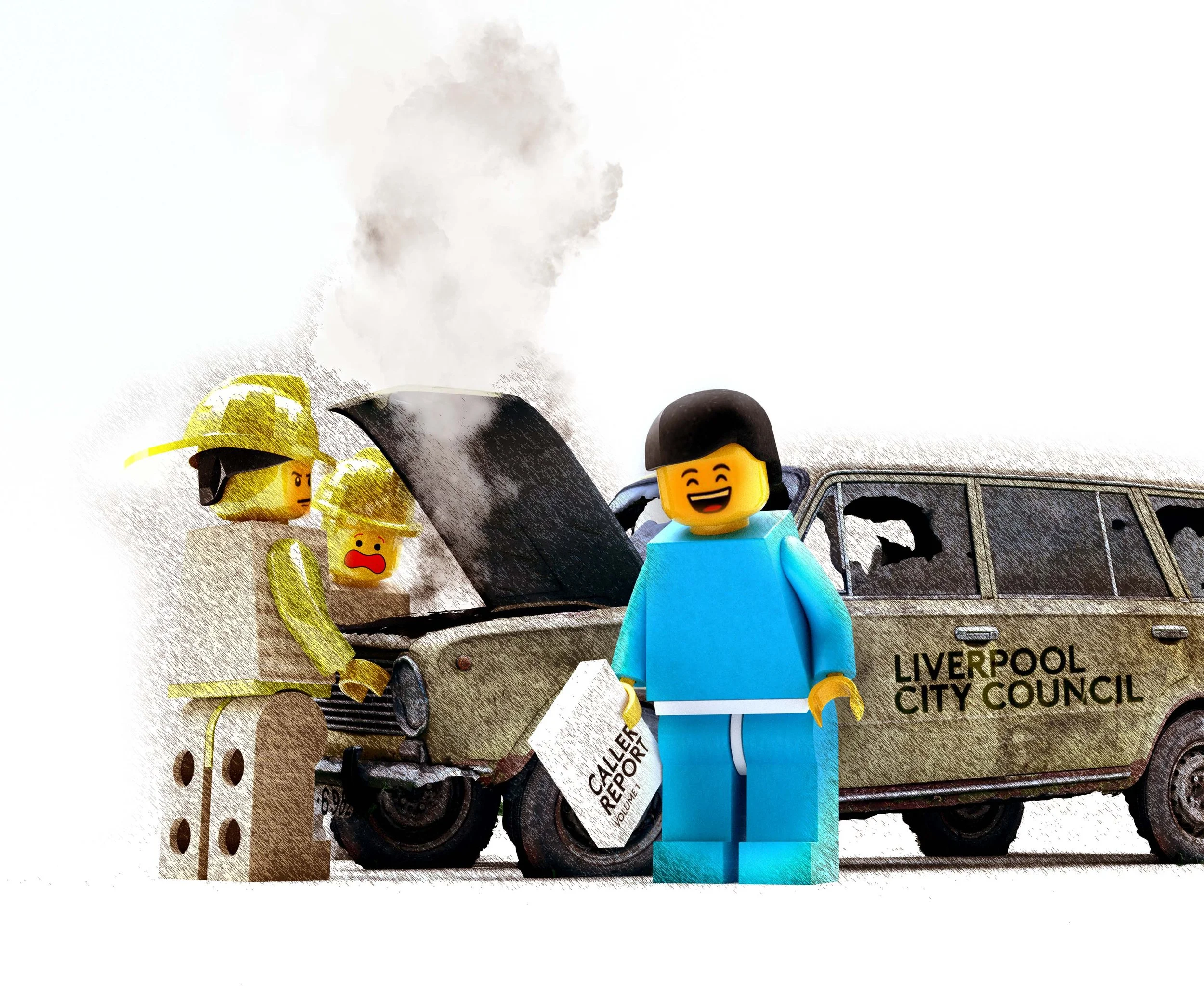Recent features
Devolution Derailed: When trust turns to dust
The breaking of the mayoral promise for a referendum on the way Liverpool is governed will have lasting effects on voter engagement. Trust has not just been lost, it’s been shat on and flushed into the river. But it’s not too late to change tack. Do councillors have the guts and the smarts to change their minds, put self-interest to one side, and give the people what they desperately need?
Matt O’Donoghue
Elected Mayors. Cabinet or Committee. Devolution. Who wants any of it and who really cares? Well, we all do and those who don’t really should. The more say we have over the way we’re governed, and the way we raise and spend our taxes, the better. But what good is having an opinion about how your city or region is run, if your voice is only listened to but never heard?
A proper referendum – not a ‘consultation’ on just the Mayoral Model – but one that gives the citizens a real choice in how they are governed is what the political nihilists of Liverpool need. Encourage them to step away from the edge, to stop blaming the Tories and their Commissioners, or Joe Anderson and his cronies, and let the people take control of their future.
The current debate over an elected Mayor for Liverpool, and who should have the final say, has more than the malodorous whiff of déjà vu. We could have hot-wired the flux capacitor and jumped into the Doc’s DeLorean to step back to the future of the Cunard’s Council Chambers circa 2012 and barely noticed the difference. Many of the same faces are there. Just as Joe’s army of acolytes did, back when he was Labour Leader of the ruling party, so Joanne Anderson and today’s elected members appear to have snatched the option to choose how their city will be governed from the fingers of its citizens. The best you can say is that it took the current Mayor until January 26th - that’s ten months - to break her manifesto pledge and her media promises for a referendum.
Accusations of ‘betrayal’ and ‘u-turn’ by Mayor Joanne Anderson on this issue, however true they may be, are as pointless as the consultation that her passed amendment is likely to deliver. The binary ‘yes’ or ‘no’ choice that the citizens are likely to get is an exercise that’s estimated to cost £120,000 and will not be legally binding. It serves to appease and to distract. At its core this is about far more than whether to elect a City Mayor. This is about popular engagement and allowing the people to finally have their say over how their city is run; Mayor with a Cabinet, Cabinet and Leader, or Leader and Committee. And it obviously scares them to give the people a choice because our councillors appear to be doing everything they can to make sure this doesn’t happen. Again.
Amid smokescreen-claims that the estimated costs of any full referendum would be £450,000, the Mayor’s post-election pledge that she could be trusted to deliver a legally binding vote have been turned to ashes. As one council insider put it;
“She really should have looked under the bonnet before she promised to put the car back on the road.”
But the importance of a push towards a re-engagement with politics and how the Liverpool City Region’s capital is governed cannot be underestimated. The people of Liverpool deserve this much after being taken for granted, and for fools for so many years. Trust has not just been lost, it’s been shat on and flushed into the river. Never have the people of Liverpool felt more disillusioned with - and more distanced from - those they elect.
When Manchester voters were handed their referendum they chose to reject Mayoral and Cabinet governance and to stick with the Committee system, led until recently by Labour’s Sir Richard Leese. In this city, Labour holds 94 of the 96 seats. Of course, we still ended up with the ‘King of The North’, Greater Manchester Mayor Andy Burnham imposed upon us from above. But in terms of the city authority, we never missed what we never had, a spare Mayor to push the city’s interests. But at least we had our say through a referendum and the people were engaged with the political process. They said ‘no’ in a way that had to heard.
Trust has not just been lost, it’s been shat on and flushed into the river.
When it came to Greater Manchester’s Mayor, like Liverpool, the toy came without instructions. Our two great cities and our regions were political petri dishes. This was Call-Me-Dave Cameron’s experiment in devolved democracy and we just had to get on with things as best we could. But both experiments have had disastrous consequences because transparency and accountability have become an ‘inconvenience’ in the dash towards devolution. I spent the last decade as a journalist exposing the effects of these slippery standards in integrity and investigating the statutory failures of governance and oversight that got us here, in Liverpool and Greater Manchester.
In Greater Manchester, the Mayor was handed the Policing and Crime Commissioner’s duties. Where once we had a monthly Police Committee made up from elected members with statutory powers of oversight and audit responsibilities over the country’s second largest constabulary, now we have Baroness Beverley Hughes who was appointed by Andy Burnham. Oversight has slipped and with it transparency, leaving the Fourth Estate (the media) and its journalists to hold the police to account for their failings and to expose the devastating effects on individuals.
Perhaps Greater Manchester Police was too complicated or contentious for the new office to deal with? Whatever the reasons, we now have a new computer control system that’s possibly £80 million over budget - we can’t find out for sure because the Mayor’s office has refused to answer the Freedom of Information requests - and it still doesn’t work more than two years after it was switched on. It’s likely that the Integrated Police Operational System - or iOPS - will soon be binned. Tens of thousands of victims have not received justice because their crimes have been ‘lost’ and tens of millions that should have been spent on front line policing has been blown on consultants and a computer that says ‘no’. What’s certain is that the Police Committee, whose meetings I used to attend, would have publicly asked the questions of the Chief Constable that could have halted this slow-motion car-crash and this disaster may have been averted before the damage was done. Instead, we had complicit cronies of the Chief who covered up his failings. Those who should have held him to account either didn’t see, or chose to look the other way. Sounds familiar?!
One telling difference between our two regions is the excellent job that The Manchester Evening News and the fearless Jennifer Williams did to investigate and hold authorities to account. If only The Liverpool Echo had been so diligent, rather than acting as if they were a branch of Joe Anderson’s official communications team for so many years, perhaps then the rocks would have been turned over much earlier.
Despite continual warnings from whistleblowers and the stories from those brave journalists who fought to give voice to their claims of cronyism and coverup, it took two years for the ‘King’ to kick his Chief Constable to the kerb. This only happened after an investigation by Her Majesty’s Inspectorate of Constabularies which exposed all the truths that we had broadcast and published. Finally, GMP was placed into ‘enhanced special measures’. This was the first time a police force had been found out to be operating so poorly. Andy Burnham’s nose was rubbed in it by authorities higher than himself, before he admitted that he could smell the stench and cleared the air. The best you can say is that Andy Burnham’s wilful ignorance was born of his desire to be liked and to avoid conflict - little comfort for the countless victims of rape or assault who never saw an officer because his computer kept crashing, meaning the crime was never investigated. Even so, ‘The King’ was re-elected in 2021 with 67% of the vote.
Transparency and accountability have become an ‘inconvenience’ in the dash towards devolution.
Look to Liverpool and we see a familiar pattern; an overwhelming political majority for Labour and an elected Mayor with the powers that were once held by Committee members, now in the hands of one person. The similar failings in oversight, transparency and accountability that allowed Greater Manchester Police to spiral out of control, and the same lack of integrity in those elected to serve our best interests, have brought Liverpool to the brink of financial ruin and political shame. This complete failure of the devolution experiment and the democratic governance that was supposed to hold the Mayor to account has delivered - ‘The Commissioners’, plus a former Mayor and his officers who are ‘released under investigation’, and a financial black hole the auditors say gets bigger by the day. But please don’t let them use this to fool you into thinking ‘Mayor-Bad’, ‘Leader-Good’.
The shift to elected Mayor delivered the adoption of the “Cabinet Model” of Governance creating new Committees for Regeneration, Communities, Education and more besides. These Cabinets are chaired by Leads who sit with their members, to consider and vote on the issues before them. As their reward, all Lead Members receive a top-up, or ‘Special Responsibility Allowance’ of around £13,000 on top of the £10,500 they receive as a councillor. And they are appointed by the Mayor.
The power of patronage means it pays well to stay close to “Big Joe” and “Joanne”. Under this style of constitution the idea of “delegated responsibility”, that always existed, is focused on the Mayor and their Cabinet Leads. They can choose to vest the authority they have to approve matters under consideration into the hands of Departmental Directors. In theory, this should make the resolution of difficult matters much quicker. For example, urgent business deals can be dealt with before they collapse. In practice, it has meant schemes like the Tarmacademy were railroaded through council without the proper scrutiny.
By a deft sleight of hand and before the end of 2015, the only two committees that were asking difficult questions about policies and performance - The Mayoral Select Committee, and The Overview and Scrutiny Committee, were ‘disappeared’. Mayor Joe Anderson left oversight and transparency in his wake with barely a look over his shoulder. Even so, in 2016 the voters of Liverpool still returned Mayor Joe for a second term on a reduced majority of 52%. But inside the Labour Party mutiny loomed on the horizon.
On the eve of the 2019 local elections, Joe Anderson’s own former Deputy Mayor, Anne O’Byrne, wrote her mutinous clarion call for rebellion and change. Under the flag, “Why Liverpool needs to return to a Leader and Cabinet Model”, she posted her assault on a system in which she had once been key.
“We’ve done a lot of things well (since we swept to power in 2010), however over the past few years the whole of the city has seen the problems of the Mayoral model being too centralised, adopting a Presidential style of decision making.”
Councillor O’Byrne continued her Trumpian-takedown of the way her boss did business.
“The current mayoral model insulates the Mayor from criticism. A Mayor does not hold surgeries, report regularly to the Labour Party branch and does not represent a ward that would ground them in the issues people raise on a daily basis.”
The mayoral structure, according to his one-time deputy, insulated him in an ivory tower and away from all the problems and concerns of his councillors and the electorate who voted for him.
In doing away with the position of Leader of the Council and in concentrating all power in the hands of an elected Mayor, Joe Anderson may have hoped the new system would be more dynamic, with faster decision making. He was to be the boss and his close-knit ‘gang’ would get the job done. But while listening to and communicating with councillors and communities may take a bit more time, Councillor O’Byrne wryly remarked, “It means you make better decisions for everybody and not just a selected few.”
As the electorate of Liverpool prepared to cast their 2019 votes, the Deputy Leader of the Labour Party saved her most devastating lines for last;
One telling difference between our regions is the excellent job that The Manchester Evening News did to hold authorities to account. If only The Liverpool Echo had been so diligent.
“The Mayoral model lends itself to meetings with developers, investors, Whitehall mandarins and Tory ministers in order to have a top down approach to developing the city. The people of the city have no role other than voting for the Mayor once every four years. The rest of the time they are seen as obstacles to development, not integral to the process of inclusive growth.”
Councillor O’Byrne’s depth charge was still making waves as the Labour Councillor for Knotty Ash, Harry Doyle, looked forward to working with and speaking up for his residents. In a ward once famous as the home of the comedian Ken Dodd, Councillor Doyle was more likely to be concerned with the community legacy of Liverpool Football Club’s former training ground, Melwood, than looking for a fight with the man now known as ‘Big Joe’.
Yet less than a week after the count, a leaked email chain exposed Councillor Doyle’s true feelings about his life inside Liverpool Council. “During my induction day last year, a council officer advised new councillors that 95% of decisions are made by the Mayor,” he wrote. “This is a figure that baffled me as it made me wonder what role we backbenchers have to play in policy formation.” In his leaked emails, Doyle echoes the sentiments of the former Deputy Mayor, from her night-of-the-election tweet. He wrote “It centres all of our decision-making around one person, and some decisions are not made clear to us until they’re made clear to the public via the press.”
Is it any wonder that the people who’ve watched their city carved up and sold off on the cheap have begun to abandon hope for change and trust in those they elected to deliver a better life? ‘They’re in it for themselves’ or ‘they can’t do a thing’ becomes ‘my vote makes no difference’ and soon gives way to ‘what do I care?’. And once that wall is built between the people and their politicians and it becomes unscalable, who will rise up to knock it down? The Infidels? Militant? Extreme disaffection can feed extreme politics. Councillors, be careful what you vote for.
As a proud woolly-backed Lancastrian and adopted Mancunian, married into Old Swan heritage, I believe the affairs of both cities bookending the western stretch of the M62 are important to our mutual understanding and growth. Only those who’ve breathed life in the Liverpool City Region or in Greater Manchester can truly begin to know what’s going on here, and what needs to be done in the best interests of the people whose lives and jobs reside here. Well, that assumes the people in charge actually have the best interests of their electorate held closest to their hearts… rather than their own careers, or those of the businesses and individuals of influence who drip poison in their ears.
From Corbett and Conception, to Kemp and Crone; the elected representatives of Liverpool still have the chance to unite. Mayor Joanne Anderson, must jump down from that conveniently climbed fence and make a difference for those citizens who feel their trust has been misplaced. It is they who must shoulder much of the blame for what has passed and the political embarrassment that Liverpool became. Their wards elected them to serve, and instead they passed motions that concentrated powers and blinkered oversight. They cancelled the Committees that created accountability, and set up Cabinets led by cronies. And when their constituents came with complaints about the scam developments blighting their neighbourhoods, or the Cabinets rubber stamped back-door-disposals of the city’s Crown Jewels, they found they were powerless to stop things, or too late to change them. Now is their chance to consult, to listen to those voices calling for respect.
The practice and custom of a one-size-fits-all set of policies that are dictated from a Westminster and London-centric government just doesn’t work for any of us any more. Our regions are individual and different and only a federation working together and towards the common national good can be the right way to go. This country’s regions have their own characteristics, their own needs and their own strengths. You can’t properly understand a place unless you’ve lived, loved and listened to its citizens. And heard what they have to say. To deny a ‘proper’ referendum – in favour of some ‘Mayoral Choice’ - is so much more than a sacrifice of the alternative. In a city where the councillors barely have a grip on costs, let alone appreciate values, what price to encourage engagement with ‘democracy’ and to deliver on a promise?
Matt O’Donoghue is an investigative reporter who has worked for the BBC and ITV including Granada Reports and Newsnight. He is a previous winner of the O2 Broadcast Journalist of the Year, ITV Correspondent of the Year and has won numerous awards from the Royal Television Society.
Share this article
WAH! What is it good for? Absolutely nothing
Are the Stop the Liverpool Arms Fair protests just another form of NIMBYism? Liverpolitan's Paul Bryan assesses whether ‘NOT IN MY LIVERPOOL’ is the real aspiration for many. Not in my backyard.
Paul Bryan
Are the Stop the Liverpool Arms Fair protests just a form of NIMBYISM?
If all it took to solve the world’s problems was a deep well of sincerity, then there can be no doubt that the latest demonstration in Liverpool against October’s planned AOC Europe 2021 Electronic Warfare Convention must be considered a stunning success.
Banners pleaded for ‘No more bloody wars’(is there any other kind?), ‘Nurses not Nukes’ (a reasonable-sounding request), and my personal favourite ‘Make scouse not war’. Although, it must be questioned whether vats of lamb stew, no matter how delicious, could form the basis of an effective defence strategy.
Of course, that sounds incredibly flippant and I don’t mean to be. There’s nothing wrong with wanting a better, kinder world. And anyone on the wrong end of a drone strike or a tyrannous regime could testify to the destructive power of modern armaments. That is, if they were still alive. But as I marched with and spoke to the demonstrators, I couldn’t help feeling a little confused. What is it exactly that they are asking for? That may seem like a stupid question. After all, the answer is found in the name of the campaign – Stop the Liverpool Arms Fair. And if I was in any more doubt the noisy protestor with the megaphone did her best to clear things up - the “What do we want? Stop the Arms Fair. When do we want it ? Now!” chant filled the air all day long. But to what end? If their pressure forced the ACC Liverpool Exhibition Centre to cancel the event, would one less piece of military hardware be sold in the world? Would the total weight of human misery be lightened in some way? If so, how?
Surely, the answer to those last questions would be “no” and “we’ve no idea”. Deep-down, I suspect the protestors know that too. To uncomfortably borrow an argument from the National Rifle Association for one moment, it’s people who kill people. The weapons are just the medium. And you can buy them in a lot of places. So if your actions won’t actually reduce violence in the places you protest to care about – Palestine, South Yemen, Syria – then what’s left? ‘NOT IN MY LIVERPOOL’ as one of the speakers shouted from the makeshift fire engine-come-stage, seemed to sum up the real limit of the aspirations for many. Not in my backyard.
The “What do we want? Stop the Arms Fair. When do we want it ? Now!” chant filled the air all day long. But to what end?
Which I suppose makes you wonder whether this is a futile cry in the Mersey wind – a posture to salve the conscience. Isn’t that the definition of virtue signalling?
In fairness, talking to people on the ground and listening to the speakers did reveal a whole poker hand of additional desires. Stopping arms sales to tyrannous regimes seemed to be a popular demand, while many (most) seemed to want to end all overseas arms sales full stop. I met a fair few who wanted to unilaterally dismantle the UKs armed forces and adopt a smile and hope strategy to international relations. Of course, given the profile of the crowd, plenty had their eyes on an even bigger prize. Nothing but the end of capitalism which they blame for all conflict, casually forgetting that the Romans and the Vikings were at it long before private enterprise became the de rigueur method of allocating society’s resources. I dare say the cave men were knocking each other on the head too.
My main sympathies are with those who argue for an end to foreign interventions. They hardly ever seem to make things better. Iraq, Syria, Libya and Afghanistan is quite the toll of failure. While the argument that it’s always about money and oil seem basic and vaguely ludicrous, surely the lesson from modern times is that you just can’t impose liberal values at the barrel of a gun in societies that don’t want them. More campaigning around that issue would, in my book at least, offer a far greater chance of easing the burden of war.
I met lots of wonderful people at the rally – union leaders, students, pensioners, a Sunday vicar, a veteran pilot of the Vietnam war, activists of different hues, and many more besides who had just come out for the day. But I didn’t for a minute think this was a typical cross-section of Liverpool society and I can honestly say, I have never met so many avowed pacificists in my life. Perhaps, this shouldn’t come as a total surprise. The Campaign Against The Arms Trade, which helped organise the event, has at least some of its origins in the Quaker movement – which has always taken the moral position that there is no justification for violence. Their’s is a utopian world where the lion lays down with the lamb. Where there is always room for talk. Where all it takes is an act of will to be better. “There is no place for war, only peace,” said an earnest Anya from Liverpool. And you can respect that view even if it feels counter to the sum weight of human history. She said there was no profit in war. Putting aside the obvious fact that there is, the forever outbreaks in conflict clearly show that someone benefits and it’s not always the obvious capitalist bogeymen.
While for many their pacifism seemed to be a point of idealistic principle, for others it was founded on personal experience, such as Anita from Wigan. I could really relate to her story. Her father served in the navy in WW2 and took part in the Battle of the Atlantic. He lost his youngest brother in the battle of Arnhem, while his two eldest brothers were captured and became Prisoners of War (P.O.W.) under the Japanese, which was generally not a pleasant experience. As a result, her father she said, “suffered from horrendous mental issues all his life and that is why I am anti-war.”
For Anita, being anti-war means laying down all of our nation’s weapons and refusing to fight. She wasn’t the only one who had this view. Far from it. Sadly, the road to hell is paved with good intentions. The answers to life’s questions are seldom as simple as taking a firm moral position, and laying yourself at the mercy of others can often have undesirable consequences. For every Gandhi espousing nonviolent protest, there are at least three murderous Pol Pots. Besides, in the 1980s, Labour’s flirtation with unilateral nuclear disarmament was electoral poison. Instinctively, most people are just comfortable with the idea that they need to be able to defend themselves. Barring the desperate, the zealots and those of pathological tendencies, nobody likes the idea of risking life and limb in bloody, brutal conflict. It really doesn’t have much to recommend it. But most of us know, that sometimes it’s inevitable. Sometimes you have to fight for what you believe in. Or be crushed. And I’d sooner go into a knife fight with a gun.
Labour’s flirtation with unilateral nuclear disarmament was electoral poison. Instinctively, most people are just comfortable with the idea that they need to be able to defend themselves.
While you could accuse the pacifists of naivety, they weren’t the only ones at the rally. In fact, they were almost certainly outweighed by the Left wing anti-war activists and their opposition to the arms fair appears to be far more tactical than moral, even if they wear all the accoutrements of offended outrage. In reality, they are seeking an altogether different type of utopia. The stars of the show included former Leader of the Labour Party, Jeremy Corbyn, Shadow Chancellor, John McDonnell, Labour MP Dan Carden, influential Liverpool Labour activist, Audrey White, and TV Actress, Maxine Peake. Unions such as the RMT were there too, and the Young Communist League and, of course, the Socialist Workers Party, who have more fronts than there are stars in the sky but whose banners are always recognisable by the use of that same give-away font. The list goes on – Black Lives Matter, CND, the Liverpool Friends of Palestine, and even a smattering of (although by no means all) local councillors. Liverpool Mayor, Joanne Anderson was notable by her absence.
Are these people pacifists? Well, some of them are certainly. The Left has a long tradition of being anti-war after all. But mostly they’re class warriors and their true beef is with the capitalist state. For them, the military is but an arm of the state and joining a campaign against an arms fair is an opportunity to turn the focus on imperialist warmongers, the profit motive and the racist ideologies that they believe underpin foreign adventurism. Hamstringing or completely eradicating the military and defence contractors is all part of the revolutionary playbook. It’s also a too-good-to-be-missed chance to prosecute their continuing and unhealthy obsession with Palestine. For them the campaign against the arms fair is but a proxy war, and that’s language they’d understand.
You can say what you want about Lenin, but at least he had some kind of plan. Granted it didn’t work out too well, but he did have the courage of his convictions. He was going to create a dictatorship of the proletariat, whatever it took. He didn’t hide his light under a bushel. But if Saturday was anything to go by, you can’t really say the same about the left wing demonstrators. Activist Audrey White may protest from the podium about the removing of the Labour Whip from the man who ‘still carries our (socialist) hopes and dreams’ (no I’m not talking about Keir Starmer), but the main focus of the rally was less about tackling the real causes of conflict and more about plugging into people’s innate sense of humanity. If Jeremy Corbyn was to be believed the weapons sold at the arms fair would be very targeted in the people they killed … “children in Gaza, children in Yemen, children in Somalia, children in Myannmar, children in so many places.” That really is some advanced technology. But is an exploitative pulling at heart strings any kind of argument?
Is this politics without the politics? Or is it lowest common denominator stuff, fetishizing on the weapons. Forget the context, feel the hurt.
One speaker, Haneen Awaad, 24 was introduced as a Palestinian Scouser – which feels like some kind of genetic super-breed of the oppressed
Corbyn was by no means the only one playing that game. One speaker, Haneen Awaad, 24 was introduced as a Palestinian Scouser – which feels like some kind of genetic super-breed of the oppressed. While describing herself as ‘born and bred in Liverpool’ she went on to say that all she’d ever known was ‘rockets, bombs, planes, tanks’. While the lives of Haneen’s grandparents have undoubtedly been touched by conflict (true of almost everyone of that generation in Europe) it seems unlikely that Haneen herself has had cause to fear military attacks in the streets of Anfield. Another speaker, Sarah Ashaika – a Syrian poet from Liverpool, who it was reported, has never been to Syria, regaled the audience with a poem that consisted of the names of dead Syrian children. Their involvement pointed to something hollow and performative about the rally in which people with no experience of the effects of weaponry gave testimony to the horrors of war.
Haneen excelled herself though. After telling the crowd how appalled she was at these ‘merchants of death’ visiting Liverpool, she then went on to evoke tropes about the Hillsborough disaster and the long-dead Prime Minister, Margaret Thatcher, to wrap up the (seemingly whole city’s) opposition to the arms fair as a typical scouse fight-back against injustice - which shows the way the region’s politicos continue to weave their own narrative of David and Goliath to forge a socially cohering, but ultimately toxic brand of localist exceptionalism. But more than that. Laying claim to Hillsborough to support your political campaign just felt ugly. But we shouldn’t be surprised – the idea that Liverpool is a continually oppressed city with a single socialist view of the world is the line we hear over and over again.
It was notable how often demonstrators talked in the royal ‘we’ to describe what they felt Liverpool did and didn’t want. Many seemed convinced they spoke for the wider community, one which was presented as uniformly ‘socialist’. When I asked Michael who lived in Liverpool city centre how he could be so sure his views were representative of the wider region, he seemed a little irked – “I know the temperature of the city,” he replied. Maybe. But there were, at a very generous count, 1000 people at the demo (most probably less) and it had been widely advertised. Maybe the Council should actually consult with the people before presuming on their opinions and bowing to the vocal outpourings of pressure groups. The local media don’t help in this regard, tending to treat the campaign with kid-gloves. Google it and try and find anything critical. It’s almost as if they are afraid that raising a sceptical eyebrow might invoke a storm upon their own heads.
The strongest argument I heard at the rally was the one that pushed beyond a mere repulsion at bloodshed. It goes along the lines that, we the UK, should not sell or assist the sale of arms to tyrannous regimes with a history of using those weapons on civilians. Saudi Arabia is in the dock for its military raids in the poverty stricken land of South Yemen. Israel attracts considerable ire for the overwhelming force it meets out to the Palestinians (although of course, many go much further than this in their criticism of the Israeli state), and there are other regions of concern too from the Turks treatment of the Kurds to the cruel power of the Syrian government in its suppression of internal opponents. What are we to make of this?
I’m a little torn. I am no friend of the anti-democratic Saudis and I find the concrete wall that separates communities in Israel to be offensive to every humanitarian instinct I can muster. There surely has to be some limits on who we sell weapons to – some minimum standards. But it’s most probably quite a complex calculation. Saudi Arabia is the regional counter weight to Iran, and Iran are a big part of the reason there is war in Yemen. So pick your poison. One thing I would say, is that for anti-imperialists, there seems to be a whiff of old school imperial attitudes in the presumption that it is up to the UK to determine who can and cannot be trusted with the weapons that we are content to arm ourselves with.
Regardless, countries like Turkey and Saudi Arabia are investing heavily in their own indigenous armaments manufacturing capabilities as Turkey’s development of bomber drones proves. And if not us, then the Russians, Chinese, Americans, French and more will only be happy to step in. Talk of the moral obligations of the ‘West’ is starting to sound increasingly redundant.
One thing I heard over and over again was the view that war and violence had no place in a socialist city. Yet anybody with a passing knowledge of the 20th century will know that socialism does not have a clean bill of health when it comes to oppressive violence. It has been estimated that up to 20 million Russian citizens died under Stalin’s Soviet reign of terror, possibly even more under the auspices of red China’s tyrannical Mau. Today, modern China has come under fierce criticism for forcing over a million Uyghur Muslims into euphemistically named ‘retraining’ camps. Of course, there would be a long queue of people lining up to absolve these societies as ‘not socialist’. But you can draw a line between the foundations of these states and the horrors that followed. Can we really afford to be so blasé and one-eyed about these crimes when we wrap ourselves in anti-war banners?
Besides, as I raised with a number of protestors in my interviews with them, Liverpool as a city does have a military history. Not only was it the headquarters for the crucial WW2 Battle of the Atlantic in which electronic radar technologies played a crucial role; not only does it provide significant numbers of soldiers, sailors and airmen to the British Armed Forces, but its shipyards at Cammell Lairds to this day service and manufacture navy vessels under Ministry of Defence contracts – something many locals seem to take great pride in. When the 65,000 tonne aircraft carrier, HMS Prince of Wales docked in Liverpool in February 2020, there was no shortage of visitors scrambling for tickets for the right to board. The truth is, Socialist Liverpool has a nuanced relationship with the military, but many of the anti-war demonstrators seemed keen to airbrush that fact.
I wonder what you think about all of this if you work in the local defence supply chain? According to Ministry of Defence data for 2019/20, the MOD spent £2.2bn in North West England supporting 15,000 direct jobs and many more indirectly across the whole industry. These are not small numbers and they provide some interesting context to a conversation I had at the demonstration with Dave Walsh, the President of the Liverpool Trades Council and Daren Ireland, an RMT Union Regional Organiser. They admitted that their organisations have been burning the midnight oil for years trying to figure out what to do about the thorny issue of those union members working in the defence industry. How could they square the circle of supporting their members while fighting militarism? Dave admitted that they’d finally arrived at a position. They recognised these were skilled jobs and recommended that those skills be turned away from defence to ‘socially useful’ sectors such as healthcare or for fighting climate change. I wonder what it’s like to be represented by a union that is ashamed of your existence?
Idealism can be like a drug. It makes you feel good – you’re a good person. You’re on the right side of history. But all the while history is going on about its business without you because you’ve stopped engaging with the world as is, in favour of that quick hit of righteousness. I don’t doubt that it would feel good to kick the Electronic Arms Fair out of Liverpool. But it would be a victory of dubious benefits in favour of principled naivety and leftist entryism. Not one less weapon would be sold in this world. But at least the protesters would be able to say, ‘Not in my Liverpool’. Not in my back yard.
~
The Stop The Liverpool Arms Fair demonstration took place on Saturday 11th September 2021. To hear what the protesters had to say in their own words, listen to this special podcast, Better To Break The Law Than Cause A War.
Paul Bryan is the Editor and Co-Founder of Liverpolitan. He is also a freelance content writer, script editor, communications strategist and creative coach.



